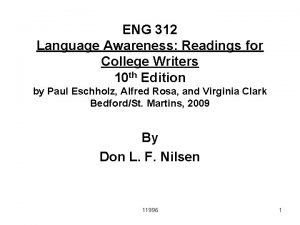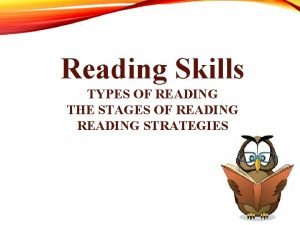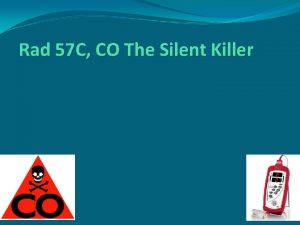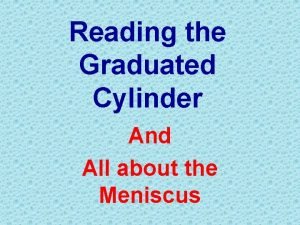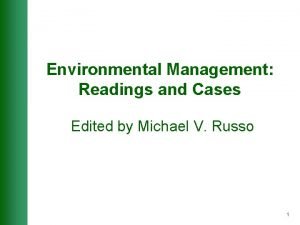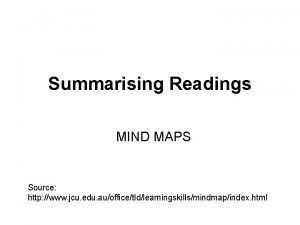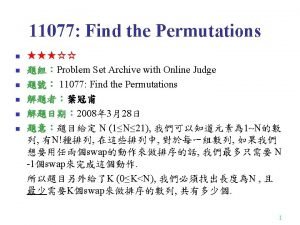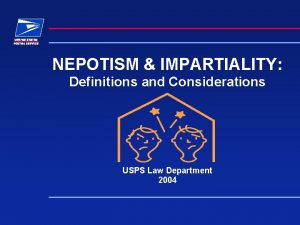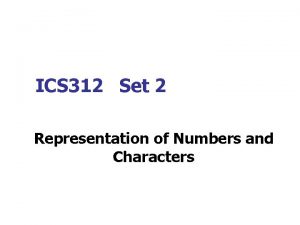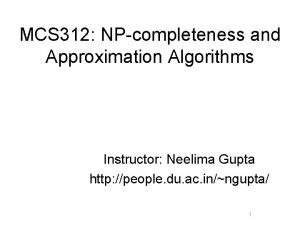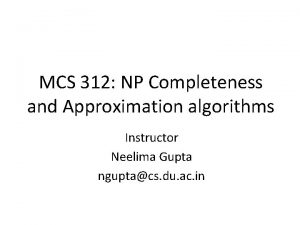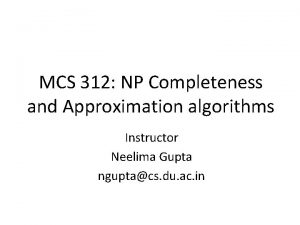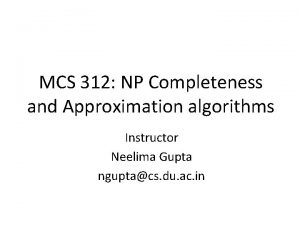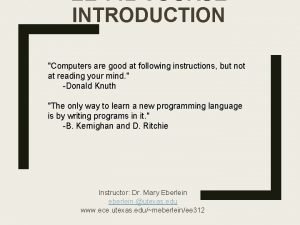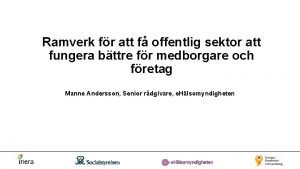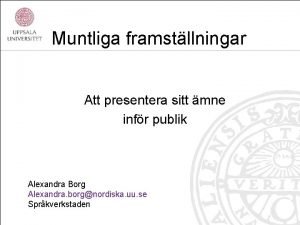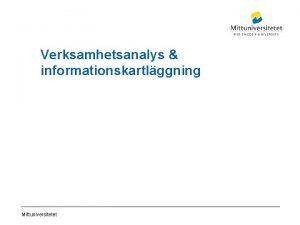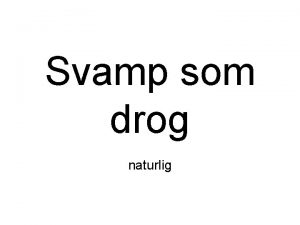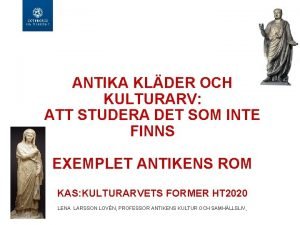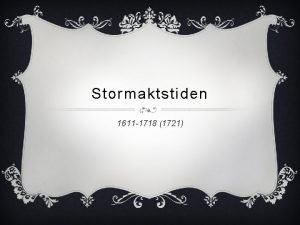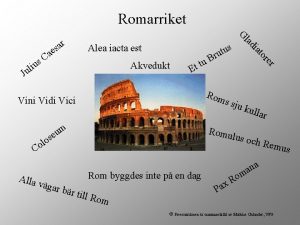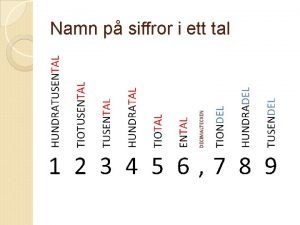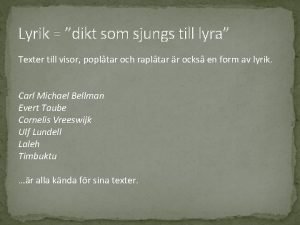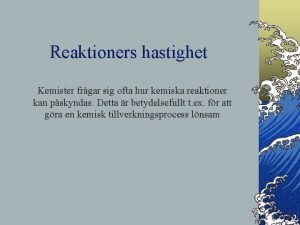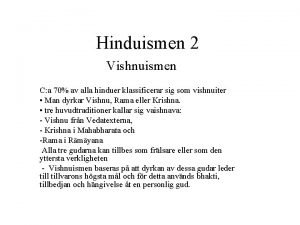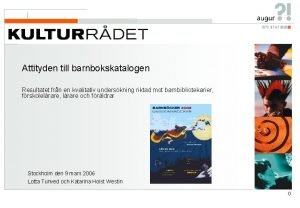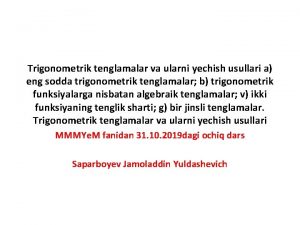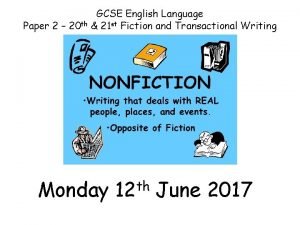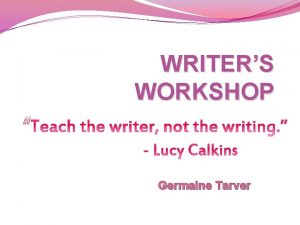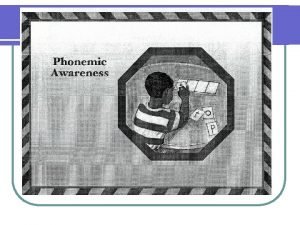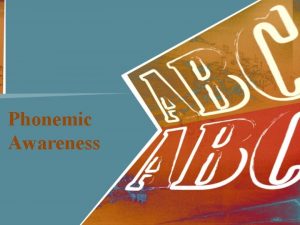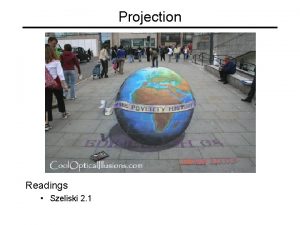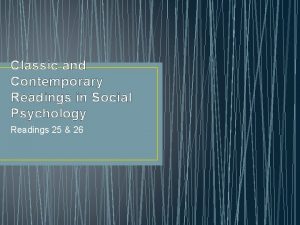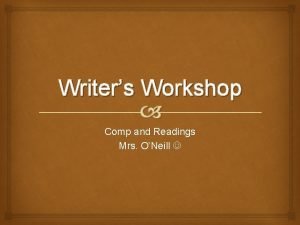ENG 312 Language Awareness Readings for College Writers





![• “As the cool stream gushed over one hand she [Annie Sullivan] spelled • “As the cool stream gushed over one hand she [Annie Sullivan] spelled](https://slidetodoc.com/presentation_image/20fa3b1e2cc326911d5b128ec4f1873c/image-6.jpg)








![(Eschholz-Rosa-Clark [2009]: 105) 96 15 (Eschholz-Rosa-Clark [2009]: 105) 96 15](https://slidetodoc.com/presentation_image/20fa3b1e2cc326911d5b128ec4f1873c/image-15.jpg)


























































































![Censorship of Isaac Bashevis Singer • “I [Anna Quindlen] got off easy. In the Censorship of Isaac Bashevis Singer • “I [Anna Quindlen] got off easy. In the](https://slidetodoc.com/presentation_image/20fa3b1e2cc326911d5b128ec4f1873c/image-106.jpg)

























![References # 2 Goldberg, Natalie. “Be Specific. ”(Eschholz, Rosa & Clark [2009]: 45). Gore, References # 2 Goldberg, Natalie. “Be Specific. ”(Eschholz, Rosa & Clark [2009]: 45). Gore,](https://slidetodoc.com/presentation_image/20fa3b1e2cc326911d5b128ec4f1873c/image-132.jpg)




![References # 8: Salais, Leticia. “Saying ‘Adios’ to Spanglish” (Eschholz, Rosa & Clark [2009]: References # 8: Salais, Leticia. “Saying ‘Adios’ to Spanglish” (Eschholz, Rosa & Clark [2009]:](https://slidetodoc.com/presentation_image/20fa3b1e2cc326911d5b128ec4f1873c/image-137.jpg)
![References # 9: Swift, Jonathan. “A Modest Proposal. ” (Eschholz, Rosa & Clark [2009]: References # 9: Swift, Jonathan. “A Modest Proposal. ” (Eschholz, Rosa & Clark [2009]:](https://slidetodoc.com/presentation_image/20fa3b1e2cc326911d5b128ec4f1873c/image-138.jpg)
- Slides: 138

ENG 312 Language Awareness: Readings for College Writers 10 th Edition by Paul Eschholz, Alfred Rosa, and Virginia Clark Bedford/St. Martins, 2009 By Don L. F. Nilsen 11996 1

Language Awareness: Attention to Detail • The poet William Carlos Williams said, “Write what’s in front of your nose. It’s good for us to know what is in front of our noses. Not just ‘daisy, ’ but how the flower is in the season we are looking at it—The dayseye hugging the earth/in August…brownedged, /green and pointed scales/armor his yellow. ” • “Learn the names of everything: birds, cheese, tractors, cars, buildings. A writer is all at once everything—an architect, French cook, farmer—and at the same time, a writer is none of these things. ” (Goldberg (2009): 5) 11996 2

1. Coming to an Awareness of Language (39 -96) • On February 21, 1965, Malcolm X, the Black Muslim leader, was killed. He had developed language skills to elevate himself from a world of thieving, pimping, and drug pushing to become a major force as a Black Muslim leader. • He said, “We didn’t land on Plymouth Rock; Plymouth Rock landed on us. ” (Malcolm X [2009]: 41) 11996 3

Malcolm X’s Epiphany: • In slow, ragged handwriting, he copied into his tablet everything in the dictionary, and then read everything back to himself. • “Funny thing, from the dictionary’s first page, that ‘aardvark’ springs to my mind. The dictionary had a picture of it, a long-tailed, long-eared, burrowing African mammal, which lives off termites caught by sticking out its tongue as an anteater does for ants. ” (Malcolm X [2009]: 43) 11996 4

Helen Keller’s Epiphany • “Helen Keller’s experiences as a deaf and blind child raise a number of questions about the relationship between language and thought, emotions, ideas, and memory. ” • On March 3, 1887, at the age of six, Helen Keller had an epiphany at the water pump of her home: (Keller (2009): 46 -48) 11996 5
![As the cool stream gushed over one hand she Annie Sullivan spelled • “As the cool stream gushed over one hand she [Annie Sullivan] spelled](https://slidetodoc.com/presentation_image/20fa3b1e2cc326911d5b128ec4f1873c/image-6.jpg)
• “As the cool stream gushed over one hand she [Annie Sullivan] spelled into the other the word water, first slowly, then rapidly. I felt a misty consciousness as of something forgotten—a thrill of returning thought; and somehow the mystery of language was revealed to me. ” • “I knew then that ‘w-a-t-e-r’ meant the wonderful cool something that was flowing over my hand. The living word awakened my soul, gave it light, hope, joy, set it free!” (Keller (2009): 46 -48) 11996 6

David Raymond’s Epiphany • David Raymond was dyslexic; he couldn’t read or write. His schoolmates called him “dumb, ” and his teachers put him with “emotionally disturbed and retarded kids. ” • But his Middle School and High School teachers had more empathy with David, and started treating him as an individual, with individual problems. (Raymond (2009): 51, 53) 96 7

• But still David worried about making a living without being able to read. How could he even fill out the application form? • Then David learned about “well-known people who couldn’t read or had other problems and still made it…” • “Like Albert Einstein, who didn’t talk until he was 4 and flunked math. Like Leonardo da Vinci, who everyone seems to think had dyslexia. ” (Raymond (2009): 51, 53) 96 8

Other Power. Points • Names and Nyms • History of English 96 9

2. Writers on Writing (97 -146) Martin Luther King’s “I Have a Dream” • “I have a dream that one day down in Alabama—with its vicious racists, with its governor’s lips dripping with the words of interposition and nullification—one day right there in Alabama, little Black boys and Black girls will be able to join hands with little white boys and white girls as sisters and brothers. ” (King 203 [2009]: 203) 96 10

• “I have a dream that one day every valley shall be exalted and every hill and mountain shall be made low, the rough places will be made plain and the crooked places will be made straight, and the glory of the Lord shall be revealed, and all flesh shall see it together. ” • And the speech concludes, “From every mountainside let freedom ring. ” • (King 203 [2009]: 203) 96 11

• “And when this happens—when we allow freedom to ring—we will be able to speed up that day when all of God’s children, Black men and white men, Jews and Gentiles, Protestants and Catholics, will be able to join hands and sing in the words of the old Negro spiritual: “Free at last! Thank God Almighty. We are free at last!” (King 203 [2009]: 203) 96 12

“And Ain’t I a Woman” by Sojourner Truth • “That man over there says that women need to be helped into carriages, and lifted over ditches, and to have the best place everywhere. ” • “ Nobody ever helps me into carriages, or over mud puddles, or gives me any best place! And ain’t I a woman? ” • “Look at me! Look at my arm. I have plowed and planted, and gathered into barns, and no man could head me! And ain’t I a woman? ” (Truth [2009]: 207) 96 13

• “I could work as much and eat as much as a man— when I could get it—and bear the lash as well? And ain’t I a woman? ” • “I have borne thirteen children, and seen them most sold off to slavery, and when I cried out with my mother’s grief, none but Jesus heard me! And ain’t I a woman? ” • “Then that little man in black there, he says women can’t have as much right as men, ‘cause Christ wasn’t a woman! Where did your Christ come from? From God and a woman! Man had nothing to do with him. ” (Truth [2009]: 207) 96 14
![EschholzRosaClark 2009 105 96 15 (Eschholz-Rosa-Clark [2009]: 105) 96 15](https://slidetodoc.com/presentation_image/20fa3b1e2cc326911d5b128ec4f1873c/image-15.jpg)
(Eschholz-Rosa-Clark [2009]: 105) 96 15

3. Politics, Propaganda & Doublespeak (147 -244) 1. Never use a metaphor, simile, or other figure of speech which you are used to seeing in print. 2. Never use a long word where a short one will do. 3. If it is possible to cut a word out, always cut it out. 4. Never use the passive where you can use the active. 5. Never use a foreign phrase, a scientific word, or a jargon word if you can think of an everyday English equivalent. 6. Break any of these rules sooner than say anything outright barbarous. (Orwell [2009]: 173). 96 16

Winston Churchill: About the Threat of Adolph Hitler • “They go on in strange paradox, decided only to be undecided, resolved to be irresolute, adamant for drift, solid for fluidity, all powerful to be impotent. ” • Al Gore’s Analogy: “Today, we dumped another 70 million tons of global-warming pollution into the thin shell of atmosphere surrounding our planet, as if it were an open sewer. And tomorrow, we will dump a slightly larger amount, with the cumulative concentrations now trapping more heat from the sun. • As a result, the earth has a fever. And the fever is rising. ” (Gore [2009]: 211). 96 17

• It’s “hard to imagine making the massive changes that are now necessary to solve the crisis. And when large truths are genuinely inconvenient, whole societies can, at least for a time ignore them. ” • “There is an African proverb that says, ‘If you want to go quickly, go alone. If you want to go far, go together. ” We need to go far, quickly. (Gore [2009]: 212 -214) 96 18

• “In the Kanji characters used in both Chinese and Japanese, ‘crisis’ is written with two symbols, the first meaning ‘danger, ’ the second ‘opportunity. ’ By facing and removing the danger of the climate crisis, we have the opportunity to gain the moral authority and vision to vastly increase our own capacity to solve other crises that have been too long ignored. ” • “We must understand the connections between the climate crisis and the afflictions of poverty, hunger, HIV-AIDS and other pandemics. As these problems are linked, so too must be their solutions. (Gore [2009]: 214 -215) 96 19

Toni Morrison’s Old Blind Wise Woman • “Once upon a time there was an old woman. Blind. Wise. One day the woman is visited by some young people who seem to be bent on disproving her clairvoyance; one of them says, ‘Old woman, I hold in my hand a bird. Tell me whether it is living or dead. ’” (Morrison [2009]: 219 -220) 96 20

• “The old woman’s silence is so long, the young people have trouble holding their laughter. ” • “Finally she speaks and her voice is soft but stern. ” • “‘I don’t know, ’ she says, ‘I don’t know whether the bird your holding is dead or alive, but what I do know is that it is in your hands. ’” (Morrison [2009]: 220) 96 21

Toni Morrison’s Analogy • “I choose to read the bird as language and the woman as a practiced writer. She is worried about how the language she dreams in, given to her at birth, is handled, put into service, even withheld from her for certain nefarious purposes. • Being a writer she thinks of language partly as a system, partly as a living thing over which one has control, but mostly as agency—as an act with consequences. • So the question the children put to her: “Is it living or dead? ” is not unreal because she thinks of language as susceptible to death, erasure; certainly imperiled and salvageable only by an effort of the will. For her a dead language is not one no longer spoken or written, it is unyielding language. ” (Morrison [2009]: 220) 96 22

• For Toni Morrison, a Dead Language is one which is “unreceptive to interrogation, it cannot form or tolerate new ideas, shape other thoughts, tell another story, fill baffling silences…” • “…Sexist language, racist language, theistic language—all are typical of the policing languages of mastery, and cannot, do not permit new knowledge or encourage the mutual exchange of ideas. ” (Morrison [2009]: 221) 96 23

• “The conventional wisdom of the Tower of Babel story is that the collapse was a misfortune. That it was the distraction, or the weight of many languages that precipitated the tower’s failed architecture. That one monolithic language would have expedited the building and heaven would have been reached. • “Whose heaven? And what kind of heaven? ” (Morrison [2009]: 222) 96 24

Jonathan Swift’s “Modest Proposal” • In 1729, Ireland was overpopulated. The Irish farmers had little food little money and inadequate living conditions. • So Jonathan Swift proposed that the farmers raise their children as delicious food for the upper classes (mainly the Englishmen). (Swift [2009]: 227 -228) 96 25

• “I have been assured by a very knowing American of my acquaintance in London, that a young healthy child well nursed is at a year old a most delicious nourishing and wholesome food, whether stewed, roasted, baked, or boiled, and I make no doubt that it will equally serve in a fricasse, or a ragout. ” (Swift [2009]: 229) • This modest proposal would solve at least six of the leading difficulties Ireland was having at the time: 96 26

1. “It would greatly lessen the number of Papists, with whom we are yearly over-run, being the principal breeders of the nation. ” 2. “The poorer tenants will have something valuable of their own. ” 3. The nation’s stock of children would be increased, and “a new dish, introduced to the tables of all gentlemen of fortune in the kingdom, who have any refinement in taste, and the money will circulate among ourselves, the goods being entirely of our own growth and manufacture. (Swift [2009]: 231) 96 27

4. “The constant breeders, besides the gain of eight shillings sterling per annum, by the sale of their children, will be rid of the charge of maintaining them after the first year. ” 5. “The tavern owners would have their houses frequented by all the fine gentlemen, who justly value themselves upon their knowledge in good eating. ” 6. “This would be a great inducement to marriage, which all wise nations have encouraged by rewards, or enforced by laws and penalties. It would also increase the care and tenderness of mothers towards their children. Men would become as fond of their wives, during the time of their pregnancy, as they are now of their mares in foal or their cows in calf. ” 7. In addition, there would be thousands of additional carcasses in Ireland’s export of barreled beef. (Swift [2009]: 232) 96 28

Let’s Outlaw Samish Sex Marriage • “Like any sane person, I am against Same-Sex Marriage, and in favor of a constitutional amendment to ban it. ” • “I would like to propose a supplementary constitutional amendment. I have frequently observed a phenemonon I have come to think of as ‘Samish-Sex Marriage. ’ Take for example, K, a male friend of mine of slight build, with a ponytail. K is married to S, a tall stocky female with extremely short hair, almost a crewcut. Isn’t it odd that this somewhat effeminate man should be married to this somewhat masculine woman? • Then I ask myself, Is this truly what God had in mind? ” (Saunders [2009]: 238) 96 29

Manly Scale of Absolute Gender • Saunders suggests that men be graded from 1 -10 for manliness, and that women be graded minus 1 to minus 10 for femininity. Any couple for which the Gender Differential is less than 10 points could not get married. • If such people are already married, then they could get a divorce, and the feminine man could marry a voluptuous high-voiced N. F. L. cheerleader, and the masculine woman could marry “a lumberjack with very large arms, thereby neutralizing her thick calves and faint mustache. ” (Saunders [2009]: 239) 96 30

• Another solution would be for men to become more masculine and women more feminine. • “When young, I had a tendency to speak too quickly, while gesturing too much with my hands. Also, my opinions were unfirm. I was constantly contradicting myself in that fast voice, while gesturing like a girl. ” • Now, “I always speak in an extremely slow, manly and almost painfully deliberate way, with my hands either driven deep into my pockets or held stock-still at the ends of my arms, which are bent slightly at the elbows, as if I were ready to respond to the slightest provocation by punching you in the face. As to my opinions, they are very firm. And I rarely change them. ” (Saunders [2009]: 240). 96 31

Related Power. Points • Business Communication • The Nature of Discourse • Usage Issues 96 32

4. Prejudice, Discrimination & Stereotypes (245 -320) • In 1997, John William King “tied James Byrd Jr. ’s feet to the back of a pickup truck and dragged him three miles down a road in rural Texas. ” • “Byrd was probably alive and conscious until his body finally hit a culvert and split in two. ” • “When King was offered a chance to say something to Byrd’s family at the trial, he smirked and uttered an obscenity. ” • --------------------- • “Buford Furrow rained terror on a Jewish kindergarten last month and then killed a mailman because of his color. ” (Sullivan [2009]: 247, 251) 96 33

Niche Haters? • “These professional maniacs are to hate what serial killers are to murder. They should certainly not be ignored; but they represent what Harold Meyerson in Salon called ‘niche haters’: cold blooded, somewhat deranged, and poorly socialized psychopaths. ” • “In a free society with relatively easy access to guns, they will always pose a menace. But their menace is a limited one, and their hatred is hardly typical of anything very widespread. ” (Sullivan [2009]: 251) 96 34

Hate Crimes • “I find myself wondering what hate actually is, in part because we have created an entirely new offense in American criminal law —a ‘hate crime’ to combat it. ” • “In 1985 there were 11 mentions of ‘hate crimes’ in the national media database Nexis. By 1990 there were more than a thousand. In the first six months of 1999, there were 7, 000. ” (Sullivan [2009]: 248) 96 35

What is “hate? ” • “For all its emotional punch, ‘hate’ is far less nuanced an idea than prejudice, or bigotry, or bias, or anger, or even mere aversion to others. ” • “Is it to stand in for all these varieties of human experience— and everything in between? ” • Talking about those who “wage war on hate”: “Perhaps it is enough for them that they share a sentiment that there is too much hate and never enough vigilance in combating it. But sentiment is a poor basis for law, and a dangerous tool in politics. It is better to leave some unwinnable wars unfought. ” (Sullivan [2009]: 251) 96 36

“Hate” Through Conservative Eyes • Sullivan talks about his “conservative friends who oppose almost every measure for homosexual equality yet genuinely delight in the company of their gay friends. ” [Note that Sullivan is himself gay] • “It would be easier for me to think of them as haters, and on paper, perhaps, there is a good case that they are. But in real life, I know they are not. Some of them clearly harbor no real malice toward me or other homosexuals whatsoever. ” (Sullivan [2009]: 251) 96 37

“Hate” Through Liberal Eyes • Sullivan’s conservative friends “are as hard to figure out as those liberal friends who support every gay rights measure they have ever heard of but do anything to avoid going into a gay bar with me. ” • “I have to ask myself in the same, frustrating kind of way: are they liberal bigots or bigoted liberals? Or are they neither bigots nor liberals, but merely people? ” (Sullivan [2009]: 251) 96 38

Columbine • “The Columbine murderers were in some sense victims of hate before they were purveyors of it. Their classmates later admitted that Dylan Klebold and Eric Harris were regularly called ‘faggots’ in the corridors and classrooms of Columbine High and that nothing was done to prevent or stop the harassment. ” • “Hate goes both ways. Some of the most vicious anti-Semites in America are black, and some of the most virulent anti. Catholic bigots in America are gay. It is often minorities who commit some of the most hate-filled offenses against what they see as their oppressors. ” (Sullivan [2009]: 256) 96 39

Hatred of Gays • “In several years of being an openly gay writer and editor, I have experienced the gamut of responses to my sexual orientation. But I have only directly experienced articulated, passionate hate from other homosexuals. I have been accused over the years by other homosexuals as being a sellout, a hypocrite, a traitor, a sexist, a racist, a narcissist, a snob. I’ve been called selfish, callous, hateful, self-hating, and malevolent. ” • “The visceral tone and style of the gay criticism can only be described as hateful. It is designed to wound personally, and it often does. But its intensity comes in part, one senses, from the pain of being excluded for so long. ” (Sullivan [2009]: 257) 96 40

“Hate” from Two Points of View • “The modern words that we have created to describe the varieties of hate—’sexism, ’ ‘racism, ’ ‘anti-Semitism, ’ ‘homophobia’—tell us very little about any of this. They tell us merely the identities of the victims; they don’t reveal the identities of the perpetrators. ” • “The hate of the perpetrators is a monstrosity. The hate of the victims, and their survivors, is justified. What else, one wonders, were surviving Jews supposed to feel toward Germans after the Holocaust? Or, to a different degree, South African blacks after apartheid? The hatred of Serbs for Kosovars today can never be equated with the hatred of Kosovars for Serbs. ” (Sullivan [2009]: 253) 96 41

Three Kinds of “Hate”: Obsessive, Hysterical & Narcissistic • “In her book The Anatomy of Prejudices, the psychotherapist Elisabeth Young-Bruehl proposes a typology of three distinct kinds of hate: obsessive, hysterical, and narcissistic. ” • “The obsessives are those, like the Nazis or Hutus, who fantasize a threat from a minority, and obsessively try to rid themselves of it. ” (Sullivan [2009]: 253) 96 42

• “Hysterical prejudice is a prejudice that a ‘person uses unconsciously to appoint a group to act out in a world forbidden sexual and sexually aggressive desires that the person has repressed. ’” • Some racists fit this pattern. “White loathing of blacks is, for some people, at least partly about sexual and physical envy. He idealizes in ‘blackness’ a sexual freedom, a physical power, that he detests but also longs for. ” It is a “love-hate” relationship. (Sullivan [2009]: 254) 96 43

• “Unlike the obsessives, the hysterical haters do not want to eradicate the objects of their loathing; rather they want to keep them in some kind of permanent and safe subjugation. ” • Sexism is often a narcissistic kind of hate, since many men feel superior to women. “Women are not so much hated by most men as simply ignored in non-sexual contexts, or never conceived of as true equals. ” (Sullivan [2009]: 254) 96 44

Hatred for a Group vs. Hatred for a Person • “A decade ago, a murder was a murder. Now, in the era when group hate has emerged as our cardinal sin, it all depends. ” • “The supporters of laws against hate crimes argue that such crimes should be disproportionately punished because they victimize more than the victim. Such crimes, these advocates argue, spread fear, hatred and panic among whole populations, and therefore merit more concern. ” • “But, of course, all crimes victimize more than the victim, and spread alarm in the society at large. ” Violent crimes and high rates of murder, robbery, assault, and burglary victimize everyone, by spreading fear, suspicion, and distress everywhere. ” But most violent crimes, including rape, are not classified as “hate crimes. ” Is this a distinction without a difference? (Allport [2009]: 263 -272) 96 45

Labels of Primary Potency and Ethnic Slurs • Write down good and bad terms for each of the following ethnic or political groups. In class we will have to refer to many of these words indirectly: • African-American, Chinese, Communist, Conservative, Gays, Germans, Hispanics, Irish, Italians, Japanese, Scotsmen, Liberals, Vietnamese, Welshman, Whites (Blue-Collar workers, Honkies, Palefaces, Rednecks, Yankees) • Others (NOTE: WHAT IS YOUR OWN HERITAGE? ) (Allport [2009]: 263 -272) 96 46

The N-Word is Bad • “I remember the first time I heard the word nigger. In my third-grade class, our math tests were being passed down the rows, and as I handed the papers to a little boy in back of me, I remarked that once again he had received a much lower mark than I did. He snatched his test from me and spit out that word. ” (Naylor [2009]: 292) 96 47

The N-Word Used to Be Good • Talking about her family Gloria Naylor said: “Among the anecdotes of the triumphs and disappointments in the various workings of their lives, the word nigger was used in my presence, but it was set within contexts and inflections that caused it to register in my mind as something else. ” • “In the singular, the word was always applied to a man who had distinguished himself in some situation that brought their approval for his strength, intelligence, or drive: • ‘Did Johnny really do that? ’ • ‘I’m telling you, that nigger pulled in $6, 000 of overtime last year. Said he got enough for a down payment on a house. ’” (Naylor [2009]: 292 -293) 96 48

• “When used with a possessive adjective by a woman—’my nigger’—it became a term of endearment for her husband or boyfriend. ” • “But it could be more than just a term applied to a man. In their mouths it became the pure essence of manhood—a disembodied force that channeled their past history of struggle and present survival against the odds into a victorious statement of being: • ‘Yeah, that old foreman found out quick enough—you don’t mess with a nigger. ’” (Naylor [2009]: 292) 96 49

Black Men in Public Space • “My first victim was a woman. As I swung onto the avenue behind her, there seemed to be a discreet, uninflammatory distance between us. Not so. She cast back a worried glance. To her, the youngish black man—a broad six feet two inches with a beard and billowing hair, both hands shoved into the pockets of a bulky military jacket—seemed menacingly close. ” • “After a few more quick glimpses, she picked up her pace and was soon running in earnest. Within seconds, she disappeared into a cross street. ” 96 50

• “On late-evening constitutionals I employ what has proved to be an excellent tension-reducing measure: I whistle melodies from Beethoven and Vivaldi and the more popular classical composers. ” • “Even steely New Yorkers hunching toward nighttime destinations seem to relax, and occasionally they even join in the tune. Virtually everybody seems to sense that a mugger wouldn’t be warbling bright, sunny selections from Vivaldi’s Four Seasons. ” (Staples [2009]: 311) 96 51

The G-Word • “A woman could never be a “nigger” in the singular, with its connotation of confirming worth. The noun girl was its closest equivalent in that sense, but only when used in direct address and regardless of the gender doing the addressing. Girl was a token of respect for a woman. ” • “The one-syllable word was drawn out to sound like three in recognition of the extra ounce of wit, nerve, or daring that the woman had shown in the situation under discussion: • ‘G-i-r-l, stop. You mean you said that to his face? ” (Naylor [2009]: 293) 96 52

• “The people in my grandmother’s living room took a word that whites used to signify worthlessness or degradation and rendered it impotent. ” • “So there must have been dozens of times that nigger was spoken in front of me before I reached the third grade. ” • “But I didn’t ‘hear’ it until it was said by a small pair of lips that had already learned it could be a way to humiliate me. ” (Naylor [2009]: 293 -294) 96 53

Related Power. Points • Gender Issues • Obscenity, a User’s Guide 96 54

5. Everyday Conversations (321 -386) • “As a practical matter, good English is whatever English is spoken by the group in which one moves contentedly and at ease. ” • “To the bum on Main Street in Los Angeles, good English is the language of other L. A. bums. Should he wander onto the campus of UCLA, he would find the talk there unpleasant, confusing, and comical. ” • “He might agree, if pressed, that the college man speaks ‘correctly’ and that he himself doesn’t. But in his heart he knows better. He would talk like them college jerks if you paid him. ” (Roberts [2009]: 330) 96 55

The Rant • “The Oxford English Dictionary defines a rant as a “high-flown, extravagant, or bombastic speech or utterance; a piece of turgid declamation; a tirade. ” • “While there are many examples of literary rants—think of Dostoyesvky’s Notes From the Underground, Beckett’s crazed, starkley beautiful monologues, or Roth’s eloquent diatribes— ranting used to be primarily an oral tradition, perfected in taverns and street corners and smoke-filled comedy clubs. ” • “The last decade or so has seen more and more written rants, a form that has blossomed on the Web. ” (Seidel [2009]: 343) 96 56

• In the “Best-of-Craigslist, ” you will find the “NYC Subway Rant: Jesus Christ!” in which “an anonymous author lists the ‘mental rolodex of the people I share the subway with on a daily basis…the monsters I can’t get used to and won’t accept. ’” • “The list includes guys who wear sunglasses, the jerk who leans into you to look at the subway map, the ‘ghostfarter, ’ and the lady that hugs the pole on a crowded train. ” • “All of these monsters have committed various sins against the cardinal law of riding the subway: Don’t make it any more miserable than it already is. ” (Seidel [2009]: 343) 96 57

• “A good rant expresses a real passion, and it is often a passion that has been enflamed by a feeling of powerlessness. Such powerlessness can explode into violent language, but the rant also tends to possess a playful element as well. ” • “The Mc. Sweeney’s Web site publishes ‘Open Letters’ to, among other things: ‘American Express’, ‘the intestinal parasites I managed to pick up in West Africa this summer, ’ ‘my sister’s psychotic dogs, ’ ‘my lost bikini bra, ’ ‘the Amazon parrot I have been supporting for over 15 years who still tries to bite me for no apparent reason, ’ and ‘the birds nesting in my air conditioner. ’” (Seidel [2009]: 344) 96 58

• One thing about a rant is that “there is neither the expectation of nor the desire for a response. ” • “The rant is an end in itself, an adrenalinefueled literary catharsis. ” • “That’s the paradox at the heart of ranting—its theatricality usually overwhelms all else, including the desire to change whatever outrage has elicited the rant in the first place. ” (Seidel [2009]: 344) 96 59

Rants on Blogs • “Blogs form a part of our cacophonous culture, one in which high-flown and bombastic speech flourishes. ” • “Far from deploring those noisy tirades indiscriminately, we should embrace their more skillful and playful practioners, who are developing an entertaining variation on an old form and helping to put dental hygienists, skunks, and American Express in their places. ” (Seidel [2009]: 344) 96 60

The Creativity of Instant Messaging • ppl, u, r, c, 2, 4, l 8 r, b 4, oic, nm, jk, lol, brb, ttyl, gr 8, 2 moro, CWOT, DLTBBB, s, er, th • people, you, are, see, to, for, later, before, oh I see, not much, just kidding, lots of laughs, be right back, talk to you later, great, tomorrow, complete waste of time, don’t let the bedbugs bite, z, a, d (Lee [2009]: 348 -349) (Mc. Grath [2009] 352) 96 61

Instant Messaging Interference • OLD USAGE PROBLEMS: there-their-they’re, youryou’re, to-too-two, its-it’s • NEW USAGE PROBLEMS: u, r, ur, b 6, wuz, cuz, 2. • “Papers are being written with shortened words, improper capitalization and punctuation, and characters like &, $ and @. Students write to one another as much as they write in school, or more. ” (Lee [2009]: 346) 96 62

Influence of Cellphones, Text Messaging, Weblogs & E-Mail • These are “popular means of flirting, setting up dates, asking for help with homework and keeping in contact with distand friends. The abbreviations are a natural outgrowth of this rapid-fire style of communication. ” • “Students have “a social life that centers around typed communication. They have a writing style that has been nurtured in a teenage social milieu. ” (Lee [2009]: 347) 96 63

Drafts vs. Final Versions Instant Messaging vs. Formal Writing • One student remarked, “I was so used to reading what my friends wrote to me on Instant Messenger that I didn’t even realize that there was something wrong. ” • Her ability to separate formal and informal English declines the more she instant messages. • Because students can think and write faster using these shortcuts, Lee suggests that first drafts be written in “IM, ” but during the editing and revising process the students should learn to switch to standard written English. (Lee [2009]: 348 -349) 96 64

Smileys >-) evil grin : -< super sad (((H))) Hugs : -X kiss : -& tongue tied : ’-) happy crying ; -) wink |-O yawn : -! foot in mouth : -D laughter : *) drunk smile : -------) liar (long nose) <(-_-)> robot (: -D blabbermouth : -0 yell @-|--- rose %-( confused (Eschholz [2009]: 350) 96 65

World Leaders in Text Messaging • “Compared with the rest of the world, Americans are actually laggards when it comes to text-messaging. ” • “In many developing countries, mobile-phone technology has so far outstripped land-line availability that cellphones are the preferred, and sometimes the only, means of communication, and text messages are cheaper than voice ones. ” • “The most avid text-messagers are clustered in Southeast Asia, particularly in Singapore and the Philippines. ” (Mc. Grath [2009]: 353) 96 66

Text Messaging for Small Talk • “The great majority of text messages are of the ‘Hey, how are you, whassup? ’ variety, and they’re sent sometimes when messenger and recipient are within speaking distance of each other —across classrooms, say, or from one row of a stadium to another. ” (Mc. Grath [2009]: 354) 96 67

But there are limits to text-messaging. 11996 68

6. Media & Advertising (387 -480) • “Despite its ‘fake news’ purview, The Onion is an extremely honest publication. ” • “Most dailies, especially those in monopoly or near-monopoly markets, operate as if they’re focused more on not offending readers (or advertisers) than on expressing a worldview of any kind. ” (Beaty [2009]: 391) 96 69

The Onion & Other “Fake” News • “The Onion has a huge print circulation—placing it in the top ten most-read newspapers in the country—when other print newspapers are rapidly losing readership. ” • On line, The Onion “attracts more than 2 million readers a week. Type onion into Google, and The Onion pops up first. Type the into Google, and The Onion pops up first. ” • This is because of The Onion’s tendency to “candor, irreverence, and a willingness to offend. ” (Beato [2009]: 389) 96 70

• “Too many high priests of journalism still see humor as the enemy of seriousness: If the news goes down easily, it can’t be very good for you. ” • “But do The Onion and its more fact-based acolytes, The Daily Show and The Colbert Report, monitor current events and the way the news media report on them any less rigorously than, say, the Columbia Journalism Review or USA Today? ” (Beato [2009]: 390) 96 71

• Here are some typical headlines from The Onion Some are liberal; others are conservative in their slant: • “Christ Kills Two, Injures Seven In Abortion-Clinic Attack. ” • “Heroic PETA Commandos Kill 49, Save Rabbit. ” • “Gay Pride Parade Sets Mainstream Acceptance of Gays Back 50 Years. ” • It’s ironic that “while The Onion may not adhere to the facts too strictly, it would no doubt place high if the Pew Research Center ever included it in a survey ranking America’s most trusted news sources. ” (Beaty [2009]: 391) 96 72

Positive Slanting: “Corlyn” • “Corlyn paused at the entrance to the room and glanced about. • A well-cut black dress draped subtly about her slender form. • Her long blonde hair gave her chiseled features the simple frame that they required. • She smiled an engaging smile as she accepted a cigarette from her escort. • As he lit if for her she looked over the flame and into his eyes. • Corlyn had that rare talent of making every male feel that he was the only man in the world. ” (Birk & Birk [2009]: 400) 96 73

Negative Slanting: “Corlyn” • “Corlyn halted at the entrance to the room and looked around. • A plain black dress hung on her thin frame. • Her stringy bleached hair accentuated her harsh features. • She smiled an inane smile as she took a cigarette from her escort. • As he lit it for her she stared over the lighter and into his eyes. • Corlyn had a habit of making every male feel that he was the last man on earth. ” (Birk & Birk [2009]: 400) 96 74

Movies vs. Television • The movie screen is bigger than life: “When Clint Eastwood narrows his eyes and challenges his rival to shoot first, the spectator sees the cool rage of the Eastwood character take visual form, and the narrowing of the eyes is dramatic. ” • The television screen is smaller than life: “It occupies about 15 % of the viewer’s visual field (compared to about 70 % for the movie screen). It is not set in a darkened theater closed off from the world but in the viewer’s ordinary living space. ” • “This means that visual changes must be more extreme and more dramatic to be interesting on television. A narrowing of the eyes will not do. A car crash, an earthquake, a burning factory are much better. ” (Postman & Powers [2009]: 408) 96 75

Infinity of Monkeys with an Infinity of Typewriters • T. H. Huxley proposed that “if you provide infinite monkeys with infinite typewriters, some monkey somewhere will eventually create a masterpiece—a play by Shakespeare, a Platonic dialogue, or an economic treatise by Adam Smith. ” • Today’s technology hooks all those monkeys up with all those typewriters, except in today’s world, the typewriters are personal computers, and the monkeys are internet users. ” (Keen [2009]: 414) 96 76

• Our culture is being flattened in a way “that is blurring the lines between traditional audience and author, creator and consumer, expert and amateur. ” • “Instead of creating masterpieces, these millions and millions of exuberant monkeys —many with no more talent in the creative arts than our primate cousins—are creating an endless digital forest of mediocrity. ” (Keen [2009]: 414) 96 77

Wikipedia • “Since Wikipedia’s birth, more than fifteen thousand contributors have created nearly three million entries in over a hundred different languages—none of them edited or vetted for accuracy. ” • “With hundreds of thousands of visitors a day, Wikipedia has become third most visited site for information and current events; a more trusted source for news than the CNN or BBC Web sites, even though Wikipedia has no reporters, no editorial staff, and no experience in newsgathering. ” (Keen [2009]: 415) 96 78

You. Tube, Google & Blogs • You. Tube is “an infinite gallery of amateur movies showing poor fools dancing, singing, eating, washing, shopping, driving, cleaning, sleeping, or just staring into their computers. ” • “By entering words into Google’s search engine, we are actually creating something called ‘collective intelligence, ’ the sum wisdom of all Google users. The logic of Google’s search engine reflects the ‘wisdom’ of the crowd. In other words, the more people click on a link that results from a search, the more likely that link will come up in subsequent searches. ” • “The New York Times reports that 50 percent of all bloggers blog for the sole purpose of reporting and sharing experiences about their personal lives. The tagline for You. Tube is ‘Broadcast Yourself. ’” (Keen [2009]: 416) 96 79

7. Should Language be Censored? (481 -526) • “When magazines are pulled from Wal-Mart’s shelves by store managers, when cover art is changed on CDs to make them Kmartfriendly, or when movies are refused by Blockbuster Video because they don’t conform to the chain’s ‘family entertainment’ image, these private decisions send waves through the culture industries affecting not just what is readily available at the local big box but what gets produced in the first place. ” • “Both Wal-Mart and Blockbuster Video have their roots in the southern U. S. Christian heartland—Blockbuster in Texas, Wal-Mart in Arkansas. Both retailers believe that being ‘family’ stores is at the core of their financial success, the very key to their mass appeal. ” (Klein [2009]: 474) 96 80

Freedom of Expression • “Mahmoud Abdul-Rauf, a basketball player for the Denver Nuggets, refused to stand up for the playing of the national anthem because of personal religious convictions. ” • “The National Basketball Association greeted his decision by suspending him from the league until someone suggested that the Founding Fathers had actually meant it when they allowed someone to do something that would outrage the rest of us. ” • “Major league baseball suspended John Rocker, the famous nut-case relief pitcher for the Atlanta Braves, when Rocker said that he did not want to ride New York City’s Number 7 subway with all those single moms, queers, and illegal aliens. ” (Rosenblatt [2009]: 483) 96 81

How far does freedom of expression go? • “A man on a soapbox speaks out on China. Fine. ” • “An editorial calls for sympathy with the Taliban. (Gulp) okay. ” • “But then a bunch of Nazis want to march around Skokie, Illinois, or Harlem, and, hold on a minute!” • “An exhibit at the Phoenix Art Museum was called ‘What is the Proper Way to Display the US Flag? ’ The exhibit required observers to walk across an American flag on the floor to get to what was displayed on a wall. ” Another exhibit in Chicago showed a flag with the word ‘think’ where the stars should have been. Think. I hate it when that happens. ” (Rosenblatt [2009]: 484) 96 82

William Shakespeare and F. Scott Fitzgerald • “The three literary works most frequently banned in our contry are Macbeth, King Lear, and The Great Gatsby. ” • “The reason school boards offer for banning Macbeth is that the play promotes witchcraft. ” • “They don’t say why they want to ban King Lear. Promotes ingratitude, I suppose. I assume that The Great Gatsby promotes Long Island. ” (Rosenblatt [2009]: 485) 96 83

J. K. Rowling • “In Georgia, the Harry Potter books were recently burned because they were said to encourage kids to want to be sorcerers. In Spokane, Washington, they wanted to remove Where’s Waldo? From the elementary school library, because it contains ‘explicit subject matter. ’” • “In Springfield, Virginia, they banned a book called Hitler’s Hang-Ups because it offered ‘explicit sexual details about Hitler’s life. ’ Given the other tendencies of Hitler’s life, I should think the sexual details would be relatively acceptable. ” (Rosenblatt [2009]: 485) 96 84

The Case for Censorship • Irving Kristol says, “if you believe that no one was ever corrupted by a book, you have also to believe that no one was ever improved by a book (or a play or a movie). ” • “You have to believe, in other words, that all art is morally trivial and that, consequently, all education is morally irrelevant. ” (Kristol [2009]: 488) 96 85

What C. S. Lewis Thinks • C. S. Lewis “suggested that it is not an accident that we have no offhand, colloquial, neutral terms for our most private parts. ” The words we do use are either: – (a) nursery terms, – (b) archaisms, – (c) scientific terms, or – (d) demeaning terms [four-letter words) (Kristol [2009]: 490) 96 86

• “If you think pornography and/or obscenity is a serious problem, you have to be for censorship. ” • “I’ll go even further and say that if you want to prevent pornography and/or obscenity from becoming a problem, you have to be for censorship. ” • “And lest there be any misunderstanding as to what I am saying, I’ll put this as bluntly as possible: if you care for the quality of life in our American democracy, then you have to be for censorship. ” (Kristol [2009]: 495) 11996 87

First Amendment Rights • In the Daily Illini, a student newspaper at the University of Illinois, a student argued that “because their true allegiance is to the state of Israel, the president should separate Jews from all government advisory positions. ” • This resulted in a firestorm, to which the editor of the newspaper gave the following response: 11996 88

• “We are committed to giving all people a voice. We print the opinions of others with whom we do not agree. To do otherwise would involve the newspaper in the dangerous acts of ‘silencing’ and ‘selfcensorship. ’ What is hate speech to one member of a society is free speech to another. ” • Stanley Fish disagrees with this editor, and says the following: 11996 89

Stanley Fish’s Rebuttal • As for giving a voice: “I’ll bet the Daily Illini is not committed to giving all people a voice—the KKK? Man-boy love? Advocates of slavery? Would-be Unabombers? ” • For Fish, self-censorship: “ is what we all do whenever we decide it would be better not to say something or cut a sentence that went just a little bit too far or leave a manuscript in the bottom drawer because it is not yet ready. Self censorship, in short, is not a crime or a moral failing; it is a responsibility. ” • As for “your hate speech is my free speech” arguments need to be supported by evidence, not by emotions and attitudes. (Fish [2009]: 497) 11996 90

FIRE: Foundation for Individual Rights in Education • FIRE has battled campus censors with great success since its founding by two men whose passion for the freedoms of speech, association, and religion transcends their politics: leftleaning lawyer Harvey Silverglate of Boston and right-leaning University of Pennsylvania professor Alan Kors. ” • “FIRE typically employs the threat of public exposure to persuade campus administrators to back off in individual censorship-through-discipline cases. ” • “FIRE champions flag-burners as well as flag-wavers, anti-Bush and Anti-American dissidents as well as conservatives. ” (Taylor [2009]: 503 -504) 11996 91

• “At top universities—including Brown, Cornell, Stanford and the University of California (Berkeley)— the ratio of professors registered in parties of the left (including Democrats) to those in parties of the right (including Republicans) in many departments ranges from almost 10 -to-1 to more than 20 -to-1. ” • “And many of them think of free speech as a right reserved to the politically correct. ” • “You are a lot less likely to be disciplined for assailing President Bush than for assailing militant Islam. ” (Taylor [2009]: 504) 11996 92

Censorship from the Right • “Censors on the political right aim to restore an idealized vision of the past, in which the family was intact, comprised of a father, a mother, two or more children, and went to church every Sunday. ” • “Father was in charge, and Mother took care of the children. Father worked; Mother shopped and prepared the meals. Everyone sat around the dinner table at night. ” (Ravitch 507) 11996 93

Censorship from the Left • “Censors from the political left believe in an idealized vision of the future, a utopia in which egalitarianism prevails in all social relations. In this vision, there is no dominant group, no dominant father, no dominant race, and no dominant gender. ” • “In this world, youth is not an advantage, and disability is not a disadvantage. There is no hierarchy of better or worse; all nations and all cultures are of equal accomplishment and value. ” • “In this world, everyone has high self-esteem, eats healthy foods, exercises, and enjoys being different. ” (Ravitch [2009]: 507) 11996 94

Evolution vs. Creationism • “Several southern legislatures passed laws requiring ‘balanced treatment’ of evolution and creationism, but such laws were consistently found to be unconstitutional by federal courts that held that evolution is science, and creationism is religion. ” (Ravitch [2009]: 509) 11996 95

Most-Attacked Books • Between 1965 and 1985, the most frequently attacked books included: The Adventures of Huckleberry Finn by Mark Twain, The Diary of a Young Girl by Anne Frank, The Scarlet Letter by Nathaniel Hawthorne, The Catcher in the Rye by J. D. Salinger, and Go Ask Alice by Anonymous (Beatrice Sparks). • “By 2000, the American Library Association’s list of ‘most attacked’ books had changed considerably. Most of the classics had fallen away. ” • “At the beginning of the new millennium, the most challenged books were of the Harry Potter series, assailed because of their references to the occult, satanism, violence, and religion, as well as Potter’s dysfunctional family. ” (Ravitch [2009]: 510 -511) 11996 96

Two Problems with Censorship from the Right • “The Bible, the most revered of sacred documents in Western culture, is replete with stories of violence, betrayal, family dissension, and despicable behavior. ” • The problem with censorship is that “censors seek not just freedom from someone else’s views, but the power to impose their views on others. ” (Ravitch [2009]: 512) 11996 97

A Paradox, and an Unexpected Consequence • “Publishers of educational materials do not want controversy (general publishers, of course, love controversy because it sells books in a competitive marketplace). ” • “Even if a publisher wins in court, its books are stigmatized as ‘controversial. ’ Even if a textbook is adopted by a district or state over protests, it will lose in other districts that want to avoid similar battles. ” (Ravitch [2009]: 512) 11996 98

Censorship from the Left • “Joan Del. Fattore, in What Johnny shouldn’t Read, writes that political correctness, taken to its extreme, ‘denotes a form of intellectual terrorism in which people who express ideas that are offensive to any group other than white males of European heritage may be punished, regardless of the accuracy or relevance of what they say” (italics in the original. (Ravitch [2009]: 513) 11996 99

Council on Interracial Books for Children • The most enduring legacy of the CIBC is its guidelines to explain “how to identify racism, sexism, and ageism, as well as a variety of other isms. ” • “They ban specific words, phrases, roles, activities, and images in textbooks and on tests. ” (Ravitch [2009]: 513) 11996 100

• Charges of Racism • “CIBC attacked numerous literary classics as racist, including Hugh Lofting’s Dr. Dolittle books, Pamela Travers’s Mary Poppins, Harriet Beecher Stowe’s Uncle Tom’s Cabin, Roald Dahl’s Charlie and the Chocolate Factory, and William H. Armstrong’s Sounder. ” (Ravitch [2009]: 514) 11996 101

Charges of Sexism • CIBC attacked the following fairy tales as sexist: “Little Red Riding Hood, ” “Cinderella, ” “Jack and the Beanstalk, ” “Snow. White, ” “Beauty and the Beast, ” “The Princess and the Pea, ” “Rumplestiltskin, ” and Hansel and Gretel. ” • These fairy tales portrayed females as “princesses or poor girls on their way to becoming princesses, fairy godmothers or good fairies, wicked and evil witches, jealous and spiteful sisters, proud, vain, and hateful stepmothers, or shrewish wives. ” • “The ‘good’ females were depicted as beautiful, the ‘bad’ ones as evil witches. ” (Ravitch [2009]): 514) 11996 102

The View of Some Feminists • “Feminists demanded a 50 -50 ratio of girls and boys, women and men, in every book. They counted illustrations to see how many female characters were represented. ” • “They noted whether girls and women were in passive or actives roles as compared to boys and men. They made lists of the occupations represented, insisted that women have equal representation in professional roles, and objected if illustrations showed women as housewives, baking cookies, or sewing. ” (Ravirtch [2009]: 516) 11996 103

Is Censorship for Children, or for Adults? • Anna Quindlen suggests that “young people should read books like Catcher in the Rye, and then ‘discuss why it upsets adults so much. ’” • (Quindlen [2009]: 519) 11996 104

Censorship of Anna Quindlen • The Georgia End-of-Course Tests deleted two words from excerpts from Anna Quildlen’s How Reading Changed My Life: • “The Sumerians first used the written word to make laundry lists, to keep track of cows and slaves and household goods. ”—deleted “slaves” • “And soon publishers had the means, and the will, to publish anything—cookbooks, broadsides, newspapers, novels, poetry, pornography, picture books for children. ”—deleted “pornography” 11996 105
![Censorship of Isaac Bashevis Singer I Anna Quindlen got off easy In the Censorship of Isaac Bashevis Singer • “I [Anna Quindlen] got off easy. In the](https://slidetodoc.com/presentation_image/20fa3b1e2cc326911d5b128ec4f1873c/image-106.jpg)
Censorship of Isaac Bashevis Singer • “I [Anna Quindlen] got off easy. In the Singer excerpt on New York’s Regents exam, which was about growing up a Jew in prewar Poland, all references to Jews and Poles were excised. ” • The New York state guidelines ask, “Does the material assume values not shared by all test takers? ” • “There is no book worth reading, no poem worth writing, no essay worth analyzing, that assumes the same values for all. That sentence is the death of intellectual engagement. ” (Quindlen [2009]: 520) 11996 106

8. Should English Be the Law? (527 -562) • Theodore Roosevelt said, “We must have but one flag. We must also have but one language. That must be the language of the Declaration of Independence, of Washington’s Farewell address, of Lincoln’s Gettysburg speech and Second Inaugural. ” (King [2009]: 530) 96 107

Bilingual Education: The Voting Rights Act • “A 1975 amendment to the Voting Rights Act of 1965 mandated the ‘bilingual ballot’ under certain circumstances, notably when the voters of selected language groups reached five percent or more in a voting district. ” • “Bilingual education became a byword of educational thinking during the 1960 s. By the 1970 s linguists had demonstrated convincinglyl—at least to other academics—that black English was not ‘bad’ English but a different kind of authentic English with its own rules. ” (King [2009]: 530) 11996 108

Bilingual Education: Conservatives vs. Liberals • “The popular wisdom is that conservatives are pro and liberals con. True, conservatives such as Georege Will and William F. Buckley Jr. have written columns supporting Official English. ” • “But would anyone characterize as conservatives the present and past U. S. English board members Alistair Cooke, Walter Cronkite, and Norman Cousins? There is a strain of American liberalism that defines itself in nostalgic devotion to the melting pot. ” (King [2009]: 531) 11996 109

• In contrast, “Texas Governor George W. Bush has forthrightly said that he would oppose any English Only proposition in his state…” • “…while governor of Arkansas, Bill Clilnton signed into law an English-only bill. As President, he has described this earlier action as a mistake. ” • “Many issues intersect in the controversy over Official English: immigration, the rights of minorities, the pros and cons of bilingual education, tolerance, how best to educate the children of immigrants, and the place of cultural diverfsity in school curricula and in American society in general. ” (King [2009]: 532) 11996 110

Give the languages, & writing systems Include Pidgin Languages: Afghanistan Africa Alaska Australia Brazil Canada Central America China Czechoslov akia Denmark Finland France Germany Greece Hawaii Iceland India Italy Japan Luxembour g Macedonia New Guinea New Zealand Norway North America 11996 Pakistan Poland Portugal Russia South America Soviet Union Spain Sweden Switzerland 111

The English-Only Movement • “One of the major reasons for America’s great success as the world’s first ‘universal nation, ’ for its astonishing and unmatched capacity for assimilating immigrants, has been that an automatic part of acculturation was the acquisition of English. ” • “History has blessed us with all the freedom and advantages of multiculturalism. But it has also blessed us, because of the accident of our origins, with a linguistic unity that brings a critically needed cohesion to a nation as diverse, multiracial and multiethnic as America. ” (Krauthammer [2009]: 540) 11996 112

Bilingual Issues: Relate this Story to your own life. • “‘Niños, vengan a comer. ’ My 18 -month-old son pops out from behind the couch and runs to his high chair. • My 7 -year-old has no idea what I just said. He yells out from the same hiding spot: ‘What did you say? ’ • My older son does not suffer from hearing loss. He is simply not bilingual like his brother, and did not understand that I was telling him to come eat. ” (Salais [2009]: 545) 11996 113

Black English vs. Standard English • BARBARA MELLIX SPEAKING: “Speaking standard English to whites was our way of demonstrating that we knew their language and could use it. Speaking it to Standard-Englishspeaking blacks was our way of showing them that we, as well as they, could ‘put on airs. ’” • “But when we spoke Standard English, we acknowledged (to ourselves and to others) that our customary way of speaking was inferior. We felt foolish, embarrassed, somehow diminished because we were ashamed to be our real selves. ” • “In our school, where there were no whites, my teachers taught Standard English, but they used Black English to do it. ” (Mellix [2009]: 550 -551) 11996 114

Code Switching • “I watched my aunt and uncle--who had always spoken Standard English when in Greeleyville— switch from Black English to Standard English to a mixture of the two, according to where they were or who they were with. ” • “At home and with certain close relatives, friends, and neighbors, they spoke Black English. With those less close, they spoke a mixture. In public and with strangers, they generally spoke Standard English. ” (Mellix [2009]: 552) 11996 115

English vs. Korean • “The moment I walked into the dry-cleaning store, I knew the woman behind the counter was from Korea, like my parents. To show her that we shared a heritage, and possibly get a fellow countrymnan’s discount, I tilted my head forward, in imitation of a traditional bow. • ‘Name? ’ she asked, noticing my attempted obeisance. • ‘Hwang, ’ I answered. • ‘Hwang? Are you Chinese? ’” 11996 116

• “It’s always struck me as funny (in a mirthless sort of way) that I can more readily say ‘I am Korean’ in Spanish, German, and even Latin than I can in the language of my ancestry. In the end, I told her in English. ” • “The dry-cleaning woman squinted as though trying to see past the glare of my strangeness, repeating my surname under her breath. ‘Oh, Fxuang, ’ she said, doubling over with laughter. ‘You don’t know how to speak your name. ” • “I straddle two cultures. I feel displaced in the only country I know. I identify with Americans, but Americans do not identify with me. ” • “My parents don’t want their daughter to be Korean, but they don’t want her fully American, either. Children of immigrants are living paradoxes. We are the first generation and the last. We are in this country for its opportunities, yet filial duty binds us. ” (Hwang [2009]: 558 -260) 11996 117

9. What’s All the Fuss about Natural, Organic, Local Foods? (523 -602) • During the first age of food, “natural” meant natural, and “spoilage” was a natural process. • During the second age, “we learned to salt and dry and cure and pickle in the first age of food processing, and to can, freeze, and vacuum-pack” the food in the second age. (Pollan [2009]: 565) 96 118

• In the third age of food processing, the goal was to improve on nature: • Advances in marketing pushed aside butter “to make shelf space for margarine, replaced fruit juice with juice drinks and then entirely juice-free drinks like Tang, cheese with Cheez Whiz, and whipped cream with Cool Whip. ” • “Breakfast cereal is the prototypical processed food: four cents’ worth of commodity corn transformed into four dollars’ worth of processed food. ” (Pollan [2009]: 566 -567) 11996 119

The Fixed-Stomach Problem • The consumer can eat only so much food. Food industry executives call this the “fixedstomach” problem. Economists call it “inelastic demand. ” • “Each of us can eat only about fifteen hundred pounds of food a year, ” so General Mills and Mc. Donalds had to “figure out how to get people to spend more money from the same three-quarters of a ton of food, or entice them to actually eat more than that. ” (Pollan [2009]: 268) 11996 120

The Fourth Age: Value Added • “You want to be selling something more than a commodity, something more like a service: novelty, convenience, status, fortification, lately even medication. ” • “The problem is, a value-added product made from a cheap commodity can itself become a commodity, so cheap and abundant are the raw materials. ” (Pollan [2009]: 569) 11996 121

Fake Sugars, Fake Fat, and Fake Starches • In the fourth age of food processing, “the processed food will be infinitely better (i. e. , contain more of whatever science has determined to be good stuff) than the whole foods on which they’re based. ” • RESISTANT STARCH TO LOSE WEIGHT: “Since the body can’t break down resistant starch, it slips through the digestive track without ever turning into calories of glucose—a particular boon, we’re told for diabetics. ” • “When fake sugars and fake fats are joined by fake starches, the food industry will at long last have overcome the dilemma of the fixed stomach: whole meals you can eat as often or as much as you like, since this food will leave no trace. ” (Pollan [2009]: 570 -571) 11996 122

A SONG TITLE: “No-One’s Gonna Keep ‘Em Down on the Farm After They’ve Seen Paris” • “In two generations we’ve transformed ourselves from a rural to an urban nation. North American children begin their school year around Labor Day and finish at the beginning of June with no idea that this arrangement was devised to free up children’s labor when it was needed on the farm. ” • “The baby boom psyche embraces a powerful presumption that education is a key to moving away from manual labor, and dirt—two undeniable ingredients of farming. ” (Kingsolver [2009]: 574) 11996 123

Put your money where your mouth is! Plus A Three-Step Program • “A government policy advises us to eat more fruits and vegetables, while doling out subsidies not to fruit and vegetable farmers, but to commodity crops destined to become soda pop and cheap burgers. ” • “A genuine food culture is an affinity between people and the land that feeds them. Step one, probably, is to live on the land that feeds them, or at least on the same continent, ideally the same region. Step two is to be able to countenance the ideas of ‘food’ and ‘dirt’ in the same sentence, and three is to start poking into one’s supply chain to learn where things are coming from. ” (Kingsolver [2009]: 580 -581) 11996 124

“Nature” calls! • “Whether you’re picking up Nature’s Energy Supplements, Natrol, Nature’s Way, Naturade, Nature’s Gate, or Nature’s Herbs in the vitamin aisle, attending a lecture on ‘Natural Sleep Aids, ’ or diving into a bowl of Quaker 100% Natural Granola, you cannot escape the hype. ” • “In a recent issue of Delicious magazine, for example, these words were used 85 times in the first 40 pages. ” 11996 125

Regulated Words vs. “Natural” Words • “The Nutritional Labeling and Education Act of 1990 (ULEA) restricted the use of the following terms on food labels: low fat, low sodium, low cholesterol, low calorie, lean, extra lean, reduced, good source, less, fewer, light, and more. ” • “A calorie-free product, for example, must have fewer than 5 calories per serving, while a cholesterol-free product must have 2 milligrams or less of cholesterol per serving. ” • “Mother Earth News reports that products labeled ‘organic’ must align themselves with one of the 40 sets of organic standards, most often the California Organic Foods Act of 1990. ” • “This leaves ‘natural’ as one of the few unregulated words. ” (Federman [2009]: ” 585) 11996 126

Structure/Function Claims (Not Regulated by FDA) vs. Disease Claims (Regulated by FDA) Structure/function claims “describe how a food or supplement affects the body’s structure (say, the skeleton) or its function (for example, digestion). ” “According to the law, a disease claim promises to ‘diagnose, cure, mitigate, treat, or prevent disease. ’ If it does any of these things it is classed as a “drug” and must be regulated by the FDA. Bruce Silverglade explains, “the distinction between a structure/function claim and a disease claim can be subtle. For example, ‘helps restore sexual vigor, potency, and performance’ is a disease claim, says the FDA. In contrast, ‘arouses sexual desire’ is a structure/function claim. ” (Liebman [2009]: 589 -590) 11996 127

What does “Organic” Mean? • “Let’s say you live in New York City and want to buy a pound of tomatoes in season. Say you can choose between conventionally grown New Jersey tomatoes or organic ones grown in Chile. ” • “Should a New Yorker just instinctively choose organic, even if the produce comes from Chile? ” (Maloney [2009]: 596) 11996 128

The Whole Foods Banner • The Whole Foods Banner says: “Buying organic supports the small, family farmers that make up a large percentage of organic food producers. ” • Field Maloney says that this is “linguistic sleight of hand, ” because “almost all the organic food in this country comes out of California. And five or six big California farms dominate the whole industry. ” • “There a lot of small, family-run organic farmers, but their share of the organic crop in this country, and of the produce sold at Whole Foods, is miniscule, ” so Field Maloney considers the sentence “Small family farmers that make up a large percentage of organic food producers” to be “sneaky wording. ” (Maloney [2009]: 596) 11996 129

What kind of food do you eat? • “One’s food choices may be vegetarian, vegan, organic, grass-fed, free-range, humanely raised, or some combination of these. As to the source of this food, it could range from ‘generally local when it’s easy to get’ to ‘obsessively local and will eat nothing else. ’” • (Winne [2009]: 600) 11996 130

References # 1: Allport, Gordon. “The Language of Prejudice. ” (Eschholz, Rosa & Clark [2009]: 263 -272). Beato, Greg. Amusing Ourselves to Depth” (Eschholz, Rosa & Clark [2009]: 389). Eschholz, Paul, Alfred Rosa, and Virginia Clark. Language Awareness: Readings for College Writers. New York, NY: Bedford/St. Martin’s, 2009. Federman, Sarah. “What’s Natural about Our Natural Products? ” (Eschholz, Rosa & Clark [2009]: 583 -586). Fish, Stanley. “The Free-Speech Follies” (Eschholz, Rosa & Clark [2009]: 496 -500). 96 131
![References 2 Goldberg Natalie Be Specific Eschholz Rosa Clark 2009 45 Gore References # 2 Goldberg, Natalie. “Be Specific. ”(Eschholz, Rosa & Clark [2009]: 45). Gore,](https://slidetodoc.com/presentation_image/20fa3b1e2cc326911d5b128ec4f1873c/image-132.jpg)
References # 2 Goldberg, Natalie. “Be Specific. ”(Eschholz, Rosa & Clark [2009]: 45). Gore, Al. “Time to Make Peace with the Planet: 2007 Nobel Prize for Peace Lecture. ” (Eschholz, Rosa & Clark [2009]: 210 -217). Hwang, Caroline. “The Good Daughter” (Eschholz, Rosa & Clark [2009]: 558 -560). Keen, Andrew. “The Cult of the Amateur” (Eschholz, Rosa & Clark [2009]: 413 -418). Keller, Helen. “The Day Language Came into My Life. ” (Eschholz, Rosa & Clark [2009]: 46 -49). 96 132

References # 3: King, Robert D. “Should English Be the Law? ” (Eschholz, Rosa & Clark [2009]: 529 -538). Kingsolver, Barbara. “Called Home” (Eschholz, Rosa & Clark [2009]: 573 -582). Klein, Naomi. “Baricading the Branded Village. ” (Eschholz, Rosa & Clark [2009]: 473 -479). Krauthammer, Charles. “In Plailn English: Let’s Make It Official. ” (Eschholz, Rosa & Clark [2009]: 539 -541). Kristol, Irving. “Pornography, Obscenity, and the Case for Censorship” (Eschholz, Rosa & Clark [2009]: 487 -495). Mellix, Barbara. “From Outside, In” (Eschholz, Rosa & Clark [2009]: 548 -557). 11996 133

References # 4: Lee, Jennifer 8. “I Think, Therefore IM. ” (Eschholz, Rosa & Clark [2009]: 346 -349). Liebman, Bonnie. “Claims Crazy: Which Can You Believe? ” (Eschholz, Rosa & Clark [2009]: 588 -594. Mc. Grath, Charles. “The Pleasures of the Text. ” (Eschholz, Rosa & Clark [2009]: 352 -354). Maloney, Field. “Is Whoe Foods Wholesome? ” (Eschholz, Rosa & Clark [2009]: 595 -598). 96 134

References # 6: Morrison, Toni. “When Language Dies: 1993 Nobel Prize for Literature Lecture. ” (Eschholz, Rosa & Clark [2009]: 219 -225). Naylor, Gloria. “The Meanings of a Word. ” (Eschholz, Rosa & Clark [2009]: 291 -294. Orwell, George. “Politics and the English Language. ” (Eschholz, Rosa & Clark [2009]: 163 -174). Pollan, Michael. “Putting It Back Together Again: Processed Foods” (Eschholz, Rosa & Clark [2009]: 565 -571). Postman, Neil, and Steve Powers. “Television News: The Language of Pictures” (Eschholz, Rosa & Clark [2009]: 405 -411). 11996 135

References # 7: Quindlen, Anna. “With a No. 2 Pencil, Delete: The Destruction of Literature in the Name of Children” (Eschholz, Rosa & Clark [2009]: 519 -521). Raymond, David. “On Being 17, Bright, and Unable to Read. ” (Eschholz, Rosa & Clark [2009]: 51 -53). Roberts, Paul. “Speech Communities” (Eschholz, Rosa & Clark [2009]: 323331). Ravitch, Diane. “The Language Police” (Eschholz, Rosa & Clark [2009]: 506 -517). Rosenblatt, Roger. “We Are Free to Be You, Me, Stupid, and Dead” (Eschholz, Rosa & Clark [2009]: 483 -485). 96 136
![References 8 Salais Leticia Saying Adios to Spanglish Eschholz Rosa Clark 2009 References # 8: Salais, Leticia. “Saying ‘Adios’ to Spanglish” (Eschholz, Rosa & Clark [2009]:](https://slidetodoc.com/presentation_image/20fa3b1e2cc326911d5b128ec4f1873c/image-137.jpg)
References # 8: Salais, Leticia. “Saying ‘Adios’ to Spanglish” (Eschholz, Rosa & Clark [2009]: 545 -547). Saunders, George. “My Amendment” (Eschholz, Rosa & Clark [2009]: 237 -241). Seidel, Daniel. “The Lost Art of the Rant: How the Web Revived a Storied Tradition of Expletive-Laced Tirades. ” (Eschholz, Rosa & Clark [2009]: 342 -344). Staples, Brent. “Black Men and Public Space” (Eschholz, Rosa & l. Clark [2009]: 309 -311). Sullivan, Andrew. “What’s So Bad about Hate? ” (Eschholz, Rosa & Clark [2009]: 247 -261). 11996 137
![References 9 Swift Jonathan A Modest Proposal Eschholz Rosa Clark 2009 References # 9: Swift, Jonathan. “A Modest Proposal. ” (Eschholz, Rosa & Clark [2009]:](https://slidetodoc.com/presentation_image/20fa3b1e2cc326911d5b128ec4f1873c/image-138.jpg)
References # 9: Swift, Jonathan. “A Modest Proposal. ” (Eschholz, Rosa & Clark [2009]: 227 -233). Taylor, Stuart, Jr. “How Campus Censors Squelch Freedom of Speech” (Eschholz, Rosa & Clark [2009]: 501 -504). Truth, Sojourner. “And Ain’t I a Woman? ” (Eschholz, Rosa & Clark [2009]: 207 -208). Winne, Mark. “The Poor Get Diabetes, the Rich Get Local and Organic” (Eschholz, Rosa & Clark [2009]: 599 -602. X, Malcolm. “Discovering the Power of Language” (Eschholz, Rosa & Clark [2009]: 41 -43). 11996 138
 Language awareness readings for college writers
Language awareness readings for college writers Funksiyaning eng katta qiymati
Funksiyaning eng katta qiymati Cvs privacy awareness training answers
Cvs privacy awareness training answers What are types of reading
What are types of reading How to take readings in theodolite
How to take readings in theodolite A vernier caliper is precise to __________ ?
A vernier caliper is precise to __________ ? How to write keratometry readings
How to write keratometry readings Confined space gas limits
Confined space gas limits Rad 57 co readings
Rad 57 co readings Arterial blood gases normal values
Arterial blood gases normal values How do you read a graduated cylinder
How do you read a graduated cylinder Eb = p x a x t
Eb = p x a x t Christmas responsive reading
Christmas responsive reading Responsive reading thanksgiving
Responsive reading thanksgiving Jcu readings
Jcu readings Ammeter readings
Ammeter readings Normal ecg readings
Normal ecg readings Language to eng
Language to eng Hossein sarrafzadeh
Hossein sarrafzadeh Writers viewpoints and perspectives
Writers viewpoints and perspectives Cse 312
Cse 312 123+132+321+312
123+132+321+312 El-312 nepotism
El-312 nepotism Ics 312
Ics 312 Cse 312
Cse 312 Natural hazards definition ap human geography
Natural hazards definition ap human geography Java 8 312
Java 8 312 855-312-1470
855-312-1470 Uw cse 311
Uw cse 311 Bisc 312 usc
Bisc 312 usc Altivar 312 solar
Altivar 312 solar 2-312
2-312 Ssis 312
Ssis 312 The sponsor must submit an ind safety
The sponsor must submit an ind safety 312 bus
312 bus Decena de millar ejemplos
Decena de millar ejemplos Operations with integers jeopardy
Operations with integers jeopardy Katherine is very interested in cryogenics
Katherine is very interested in cryogenics Instruction
Instruction Ics 312
Ics 312 Ics 312
Ics 312 Simplify fractions
Simplify fractions Jika volume bangun ruang diatas 312 cm
Jika volume bangun ruang diatas 312 cm Mcs 312
Mcs 312 Mcs 312
Mcs 312 Ee 312
Ee 312 Mcs 312
Mcs 312 Mcs 312
Mcs 312 Ee 312
Ee 312 Bagian dalam sebuah pipa paralon yang berjari jari 21 cm
Bagian dalam sebuah pipa paralon yang berjari jari 21 cm Kontinuitetshantering i praktiken
Kontinuitetshantering i praktiken Typiska novell drag
Typiska novell drag Nationell inriktning för artificiell intelligens
Nationell inriktning för artificiell intelligens Returpilarna
Returpilarna Varför kallas perioden 1918-1939 för mellankrigstiden
Varför kallas perioden 1918-1939 för mellankrigstiden En lathund för arbete med kontinuitetshantering
En lathund för arbete med kontinuitetshantering Personalliggare bygg undantag
Personalliggare bygg undantag Vilotidsbok
Vilotidsbok Sura för anatom
Sura för anatom Densitet vatten
Densitet vatten Datorkunskap för nybörjare
Datorkunskap för nybörjare Stig kerman
Stig kerman Mall för debattartikel
Mall för debattartikel Delegerande ledarstil
Delegerande ledarstil Nyckelkompetenser för livslångt lärande
Nyckelkompetenser för livslångt lärande Påbyggnader för flakfordon
Påbyggnader för flakfordon Lufttryck formel
Lufttryck formel Publik sektor
Publik sektor Lyckans minut erik lindorm analys
Lyckans minut erik lindorm analys Presentera för publik crossboss
Presentera för publik crossboss Teckenspråk minoritetsspråk argument
Teckenspråk minoritetsspråk argument Vem räknas som jude
Vem räknas som jude Klassificeringsstruktur för kommunala verksamheter
Klassificeringsstruktur för kommunala verksamheter Mjälthilus
Mjälthilus Bästa kameran för astrofoto
Bästa kameran för astrofoto Centrum för kunskap och säkerhet
Centrum för kunskap och säkerhet Programskede byggprocessen
Programskede byggprocessen Mat för unga idrottare
Mat för unga idrottare Verktyg för automatisering av utbetalningar
Verktyg för automatisering av utbetalningar Rutin för avvikelsehantering
Rutin för avvikelsehantering Smärtskolan kunskap för livet
Smärtskolan kunskap för livet Ministerstyre för och nackdelar
Ministerstyre för och nackdelar Tack för att ni har lyssnat
Tack för att ni har lyssnat Hur ser ett referat ut
Hur ser ett referat ut Redogör för vad psykologi är
Redogör för vad psykologi är Borstål, egenskaper
Borstål, egenskaper Atmosfr
Atmosfr Borra hål för knoppar
Borra hål för knoppar Vilken grundregel finns det för tronföljden i sverige?
Vilken grundregel finns det för tronföljden i sverige? Varians
Varians Tack för att ni har lyssnat
Tack för att ni har lyssnat Rita perspektiv
Rita perspektiv Informationskartläggning
Informationskartläggning Tobinskatten för och nackdelar
Tobinskatten för och nackdelar Toppslätskivling effekt
Toppslätskivling effekt Gibbs reflekterande cykel
Gibbs reflekterande cykel Egg för emanuel
Egg för emanuel Elektronik för barn
Elektronik för barn Fredsgudinnan
Fredsgudinnan Strategi för svensk viltförvaltning
Strategi för svensk viltförvaltning Var 1721 för stormaktssverige
Var 1721 för stormaktssverige Humanitr
Humanitr Ro i rom pax
Ro i rom pax Tack för att ni lyssnade
Tack för att ni lyssnade Samlade siffror för tryck
Samlade siffror för tryck Lyrik dikt
Lyrik dikt Inköpsprocessen steg för steg
Inköpsprocessen steg för steg Rbk fuktmätning
Rbk fuktmätning Ledarskapsteorier
Ledarskapsteorier Omprov cellprov
Omprov cellprov Myndigheten för delaktighet
Myndigheten för delaktighet Trög för kemist
Trög för kemist Tillitsbaserad ledning
Tillitsbaserad ledning Läkarutlåtande för livränta
Läkarutlåtande för livränta Brunn karttecken
Brunn karttecken Gumman cirkel
Gumman cirkel Shivaiter
Shivaiter Meios steg för steg
Meios steg för steg Bris för vuxna
Bris för vuxna Big brother rösta
Big brother rösta Asd college college readiness program
Asd college college readiness program Early college high school at midland college
Early college high school at midland college Trigonometrik tenglamalar yechish usullari
Trigonometrik tenglamalar yechish usullari Http://numericalmethods.eng.usf.edu
Http://numericalmethods.eng.usf.edu Ratsional kasrlarni integrallash
Ratsional kasrlarni integrallash Eng shooting
Eng shooting เฉลย my english lab startup 5
เฉลย my english lab startup 5 Kanopcha
Kanopcha Eng qadimgi davrlarda ta'lim tarbiya
Eng qadimgi davrlarda ta'lim tarbiya Hkdse english weighting
Hkdse english weighting Edexcel gcse english language paper 2
Edexcel gcse english language paper 2 Eng vs efp
Eng vs efp Eng m 401
Eng m 401 Eng m 501
Eng m 501 What is electronic news
What is electronic news 2015 dse
2015 dse Dars tiplari
Dars tiplari Http://numericalmethods.eng.usf.edu
Http://numericalmethods.eng.usf.edu Avesto eng qadimgi yozma manba
Avesto eng qadimgi yozma manba
